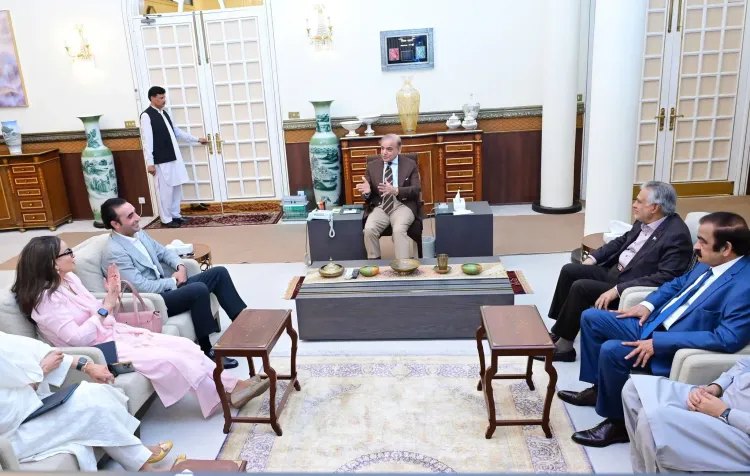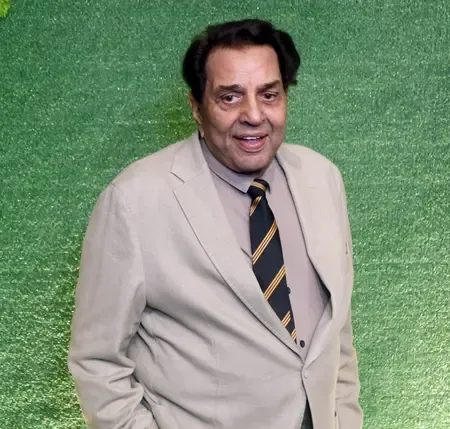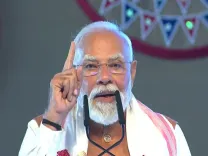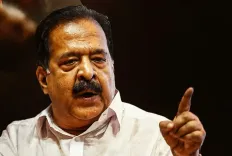Is Pakistan Losing Ground to India's Operation Sindoor Outreach?

Synopsis
Key Takeaways
- Pakistan's Prime Minister begins a diplomatic tour.
- India's Operation Sindoor aims to counter terrorism.
- International condemnation of terrorism linked to Pakistan is rising.
- Pakistan is struggling to maintain strong alliances.
- Sharif's visit reflects a response to a shifting global narrative.
Islamabad/New Delhi, May 24 (NationPress) Feeling cornered and under pressure from India's diplomatic and political campaign associated with Operation Sindoor, Pakistan's Prime Minister Shehbaz Sharif is set to embark on a six-day "diplomatic tour" visiting four "friendly nations"—Turkey, Iran, Azerbaijan, and Tajikistan—starting Sunday. This comes as the Bilawal Bhutto Zardari-led delegation, tasked with advocating Islamabad's stance globally, remains inactive at home.
From Tokyo and Moscow to Abu Dhabi and Guyana, multiple all-party delegations from India are currently engaging with key partners, including members of the UN Security Council, revealing the reality of Pakistan and the global terror groups operating within its borders. They are also amplifying New Delhi's firm message of zero tolerance towards terrorism.
This extensive initiative is causing unrest in the Pakistani establishment, as numerous nations—like Russia, Japan, and the UAE—have condemned the horrific April 22 Pahalgam terror attack and have shown robust support for India's determination to combat cross-border terrorism.
During his recent six-day visit to the Netherlands, Denmark, and Germany, External Affairs Minister S Jaishankar further unsettled Pakistan by meeting with top officials and discussing India's outreach to Europe.
After facing significant setbacks during Operation Sindoor, and struggling with public relations, Islamabad announced that a delegation led by Bilawal Bhutto would travel to various countries to "vigorously communicate Pakistan's narrative".
This was viewed as yet another imitation attempt by Islamabad following its unsuccessful efforts to mimic India's well-executed briefings on Operation Sindoor and Shehbaz Sharif's visit to the Army cantonment in Sialkot shortly after Prime Minister Modi's heartfelt interaction with soldiers at Adampur Air Base.
While Indian leaders are actively countering Pakistan's misinformation with substantial evidence, Sharif and Army Chief General Asim Munir—who have faced ridicule from Pakistanis, including former Prime Minister Imran Khan—are compelled to undertake desperate measures.
Experts suggest that Sharif's unexpected decision to visit four nations indicates that Pakistan is feeling increasingly isolated with only a few reliable allies.
Interestingly, Sharif held a meeting with Bilawal Bhutto on Friday to strategize Pakistan's diplomatic response to India's successful outreach missions.
Former Foreign Minister Hina Rabbani Khar and Senator Sherry Rehman, who will join Bhutto's delegation, attended the meeting along with Deputy Prime Minister and Foreign Minister Ishaq Dar, Climate Change Minister Musadik Malik, Political Affairs Advisor Rana Sanaullah, and other officials.
It was reasserted that the delegation aims to present Pakistan's position and narrative to the world "in a strong and effective manner".
However, many in Pakistan now believe—especially after observing the scale and success of India's outreach efforts—that Islamabad's initiative may end up being a case of "too little, too late".










